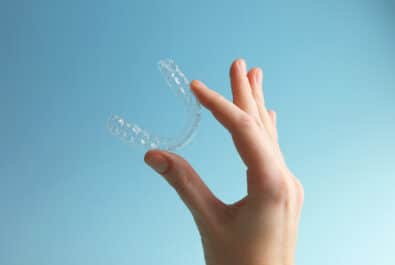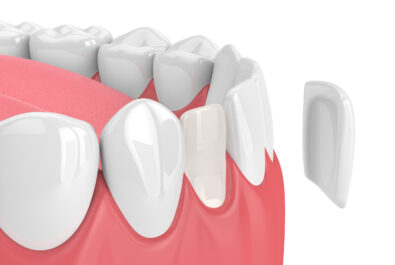Just talking about oral disease may cause you to feel anxious. While it is not necessarily something you want to talk about, you probably find that a variety of questions pass through your mind when someone mentions oral cancer. Rather than shying away from this significant topic, we encourage you to feel empowered through knowledge. Understanding how to detect the disease early for successful treatment provides you with an excellent chance of quickly treating and overcoming the illness before it has a chance to flourish. Instead of focusing on the negatives, learn more about how you can prevent cancer and regain full daily health with answers to your most pressing questions.
FAQs: How Do I Fix a Broken Tooth?
You can break a tooth by biting down on something hard, such as ice or a popcorn kernel. A sports accident can also lead to a chipped tooth. Wondering what you can do to fix a broken tooth? With the right steps, you can address the initial discomfort and the dentist can then repair the tooth and restore it to full function and health.
Tooth Extractions: A Dental Quiz
As dental professionals, our goal is to help you retain as many of your natural teeth as possible. We prefer to help you keep your smile healthy, comfortable, and functional. However, sometimes problems arise that damage your tooth too greatly to allow it to remain in place. Or, your teeth are standing in the way of your plans for a healthy, beautiful smile. When it comes to individual teeth, we may suggest tooth extractions to safeguard your smile. Wondering how much you actually know about this solution to improving your oral health? Learn more by testing your knowledge with the following quiz:
Eggs & Aprons: Easter Fun With Kids
You are probably already well aware that your little ones are going to become super excited the moment springtime and Easter products begin to line the shelves. Before it’s time to stock up on chocolate (and we hope toothbrushes and toothpaste, too), do yourself a favor and kick start the creativity that this holiday inspires. Bring your little one out for a fun afternoon of decorating plastic eggs together for a little springtime enjoyment.
Oral Surgery FAQ
While you may feel a bit unnerved to find that you need care more complex than a dental filling to address your oral health concern, we hope to reassure you that the benefits of oral surgery can greatly improve your daily quality of life. We find that even mentioning surgery to patients can leave them feeling extremely concerned. Because hesitation often stems from a lack of education, our goal is to provide you with answers to the questions commonly asked by our patients about the variety of surgical procedures we offer to improve your dental health. Curious to know more? Look over the following answers for a clearer understanding of what to expect:
Kings & Princesses Royal Evening
It’s not every day a father (or grandfather or uncle) gets to show the little princess in his life how much she means to him. If you would like to treat your daughter, granddaughter, or niece to a special evening where you can feel like a King and she like a Princess, then look no further than the Kings & Princesses Royal Evening event in Cerritos.
About Dental Implant Placement
When it comes to choosing a dental prosthetic to replace your missing tooth or teeth, the decision may feel a bit overwhelming. To keep you feeling excited rather than unsure, we prefer to offer as much education as possible. If you have been thinking about dental implants to complete your smile, you may be wondering what to expect from the placement process itself. Even though the benefits of implants are commonly unsurpassable when compared with other solutions, we understand that feeling confident about the surgery and your long-term goals still play into your final choice. Learn more with the following:
Unusual Changes? Visit Us For Oral Pathology
You use your mouth to smile, laugh, sing, chew, swallow, and speak – considering its constant activity, an occasional irritation, discomfort, or abrasion is not uncommon. However, figuring out whether a change in your mouth is benign or something that requires attention is often difficult – if not impossible – for patients to determine on their own. More interesting is that many changes in your mouth may occur without your knowledge. To protect your smile and oral health, we rely on oral pathology to diagnose diseases of your mouth and supportive structures. Fortunately, this often allows us to detect and treat changes early on in their progression. Wondering how this field of dentistry may help you? Learn more with the following information:
About Third Molars
We always encourage patients to learn more about third molars since they can affect different smiles in a variety of ways. If you are unfamiliar with this term, let us give you a hint – it is synonymous with “wisdom teeth.” Perhaps you have some that have grown in successfully – or, maybe you aren’t even sure what to make of them because as far as you know, you never grew any. Rather than continuing to wonder about this sometimes-mysterious part of your smile, we invite you to have your questions answered with the following information that is often helpful to our patients:
Learn More About Sedation Options
If you have ever hesitated to schedule dental care, you may have already learned a thing or two about the benefits of sedation dentistry. You probably know that it is appropriate for a wide variety of concerns, including dental anxiety, a severe gag reflex, or the need to undergo a lot of dental work within one sitting. Sedation is also appropriate for a variety of treatments, from something as simple as a dental cleaning to something more complex like root canal therapy. If sedation sounds like something that may improve your experience, you may wish to know more about your particular options. Consider the following breakdown:













